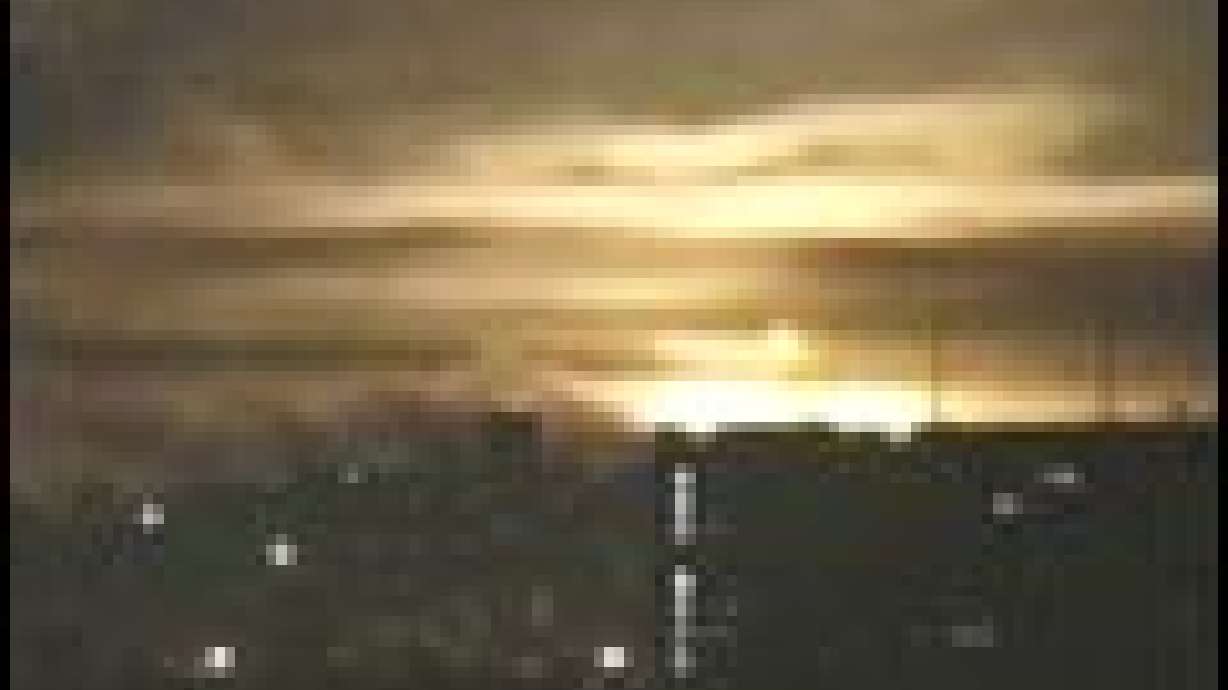Estimated read time: 4-5 minutes
This archived news story is available only for your personal, non-commercial use. Information in the story may be outdated or superseded by additional information. Reading or replaying the story in its archived form does not constitute a republication of the story.
BAGHDAD, Iraq (AP) -- Long bursts of heavy machine-gun fire and strong explosions shook Baghdad at nightfall Sunday in what appeared to be a battle not far from the city center.
The shriek of surface-to-surface rockets, the pounding of artillery and bursts of what sounded like heavy machine-gun grew in frequency and intensity Sunday evening in the city's southern approaches.
Just before 9 p.m., loud explosions and gunfire were heard downtown, not far from the Information Ministry and a hotel where many journalists are staying.
Prayers broadcast from Baghdad's mosques filtered through the din of battle. "God is great and to him we owe thanks," clerics intoned every time the city came under attack.
A haze hung over the capital. Some of the fires lit by authorities more than two weeks ago to conceal targets appeared to have fizzled out, reducing the gray smoke spiraling into the skies.
The burnt-out husks of Iraqi tanks littered one of the main roads leading to Baghdad on Sunday, one day after American troops muscled through the city. Regime leaders remained defiant and appealed for calm.
The streets were crawling with black-clad Fedayeen militia, the armed loyalists of the ruling Baath Party, and teenagers with guns.
Iraqi troops clambered up what they claimed was an allied tank destroyed in a Sunday morning battle. They made "V" for victory signs and chanted slogans in support of President Saddam Hussein.
U.S. officials at Central Command said coalition soldiers killed up to 3,000 Iraqi troops in Saturday's incursion. But Iraqi leaders denied heavy casualties and took pains to show they were still in control.
Iraqi Information Minister Mohammed Saeed al-Sahhaf tried to take the initiative in the psychological tug-of-war, warning Baghdad residents against "rumors" and "lies."
"Open your eyes and keep your minds alert to be able to differentiate between information and the inadequate ones," he said in a press briefing Sunday.
He urged residents to remain calm and warned them against firing guns without being told to do so.
The escalation of violence in the capital appeared be taking its toll on the civilian population.
At the al-Kindi hospital in a working-class Baghdad district, scores of civilians with shrapnel wounds have been coming in since Saturday night. Among them were eight members of one family.
In one ward, several children wore bloodstained casts on their legs and arms, and some had difficulty breathing. One girl had bandages over half her face. Most of the children gazed aimlessly while their parents tried to comfort them.
A Saudi man had both legs amputated below the knee. He said he was hit in the southern district of al-Doura on Saturday night during an allied air raid.
"God willed it and what he wanted was done," Roweijah Al-Oteibi said from his hospital bed.
The charred hulk of the purported allied tank teetered precariously on the edge of a crater on a highway leading out of Baghdad. Journalists taken to the site saw no sign of other U.S. tanks that Iraqi officers said had been destroyed.
Along the way, however, the skeletons of about 30 Iraqi tanks, armored personnel carriers, army trucks and other vehicles could be seen along the roadside.
Soldiers of the elite Republican Guard hunkered down Sunday for urban warfare. Armed with Kalashnikovs and mortars, they dug fresh trenches and fortified old ones. Some took over houses close to the city's southern approaches.
Iraq's state-run newspapers, meanwhile, were continuing to publish, dominated by official statements, pictures of wounded civilians and news of anti-war protests around the world.
Al-Sahhaf blamed the Americans for the suffering of Baghdad residents. He claimed allied air strikes deliberately targeted power stations and accused U.S. troops of targeting civilians.
"They are killing civilians. Whenever they see an Iraqi person, they kill him, take him prisoner or kidnap him," he said.
Power was out for two days before being restored to some parts Saturday. Most of Baghdad was still dark Sunday, and the streets were deserted by nightfall.
Some new sites were hit by coalition bombs overnight, including the National Assembly across the street from the al-Rasheed Hotel, a police headquarters in central Baghdad and the telephone exchange in the al-Maamoun neighborhood.
(Copyright 2003 by The Associated Press. All Rights Reserved.)








